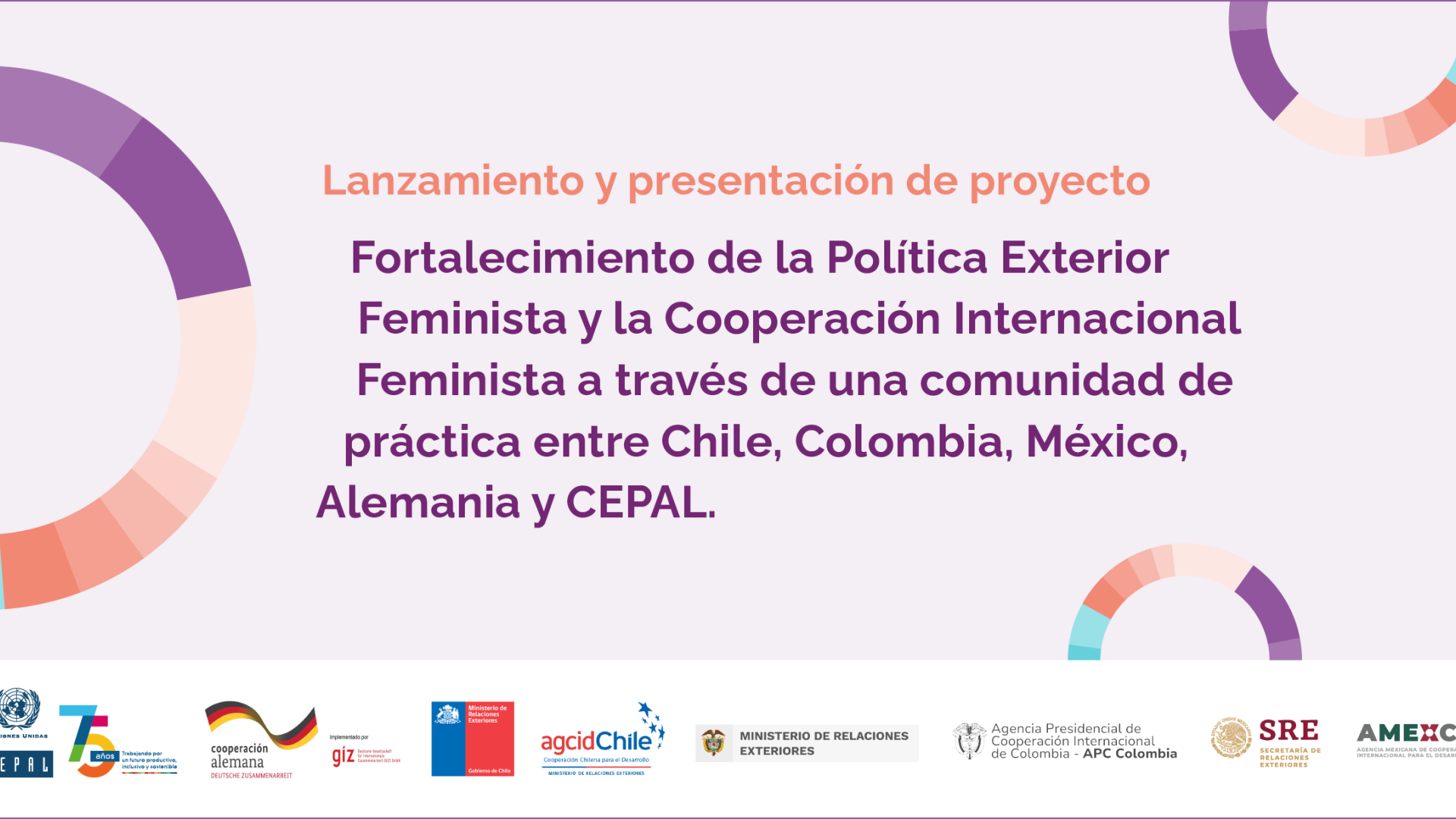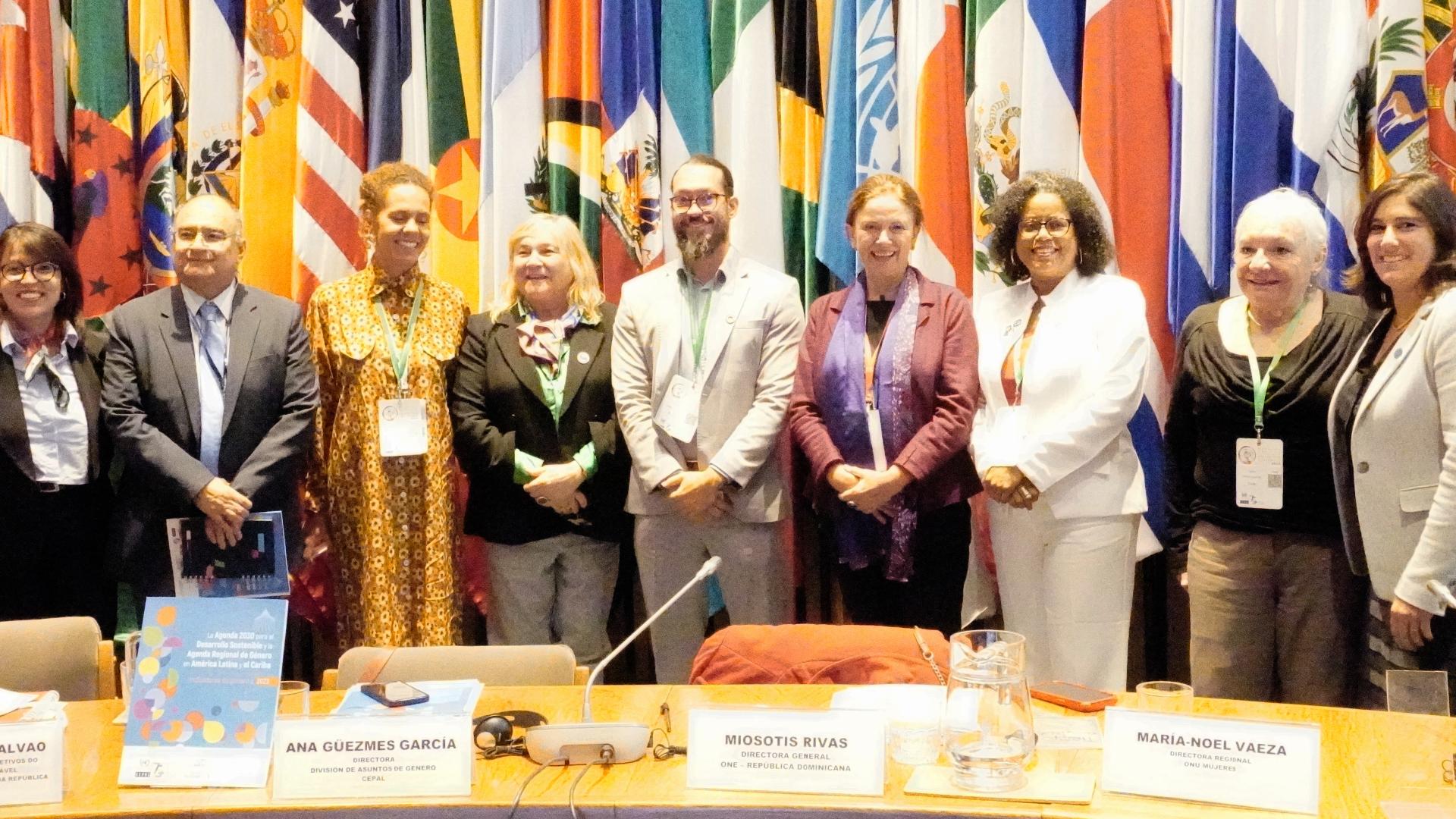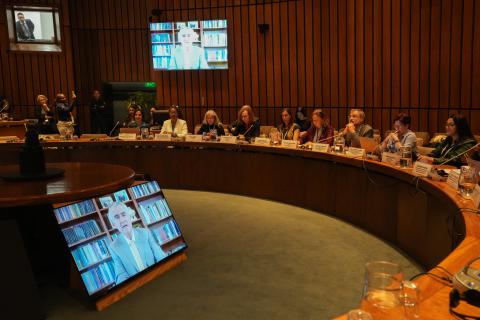Briefing note
(28 November 2011) During a meeting at ECLAC, ministers and authorities for Women from 19 countries in Latin America and the Caribbean stated that strengthening women's autonomy depends largely on the implementation of policies on gender equality, given that they are central to development.
At the opening of the Forty-sixth meeting of the Presiding Officers of the Regional Conference on Women in Latin America and the Caribbean, which is being held until 30 November at the headquarters of this regional commission of the United Nations in Santiago, Chile, the Executive Secretary of the Organization, Alicia Bárcena, stressed how important it is that governments implement machineries at the highest level for the advancement of women, with institutional status and appropriate financial and human resources.
"We want equality...Latin America and the Caribbean is committed to growth for equality and equality for growth. By achieving equality we do not mean that women and men are identical, but rather that the rights, opportunities and responsibilities of both do not depend on whether they were born male or female," stated Ms. Bárcena.
She also reminded of the importance of having policies on violence against women. "Just a few days ago we commemorated the International Day for the Elimination of Violence Against Women. This date is a milestone for human rights, but it also indicates a change of paradigm in the role of the State, which has been changing its role thanks to visibility of the problem, adoption of laws and conventions and society organized action. At ECLAC, we are working together with the whole system and we are focusing particular attention on strengthening capacities of the countries recording and measuring all forms of violence," she said.
Iriny Lopes, Chairperson of the Regional Conference on Women and Minister of the Secretariat on Policies for Women of Brazil, stressed that the meeting of Presiding Officers will deal with issues which are central to making progress in relation to women's autonomy, such as non-paid work, recognition of care work and the rise in women's political participation.
"To achieve a fully operating democracy, everyone, both male and female, must have real opportunities in employment, education, access to knowledge and help and in all aspects," she stated. "We still have a long road ahead of us to achieve equality between men and women," she said.
Quoting the speech which the current President of Brazil, Dilma Rousseff, gave at her inauguration, Minister Lopes added, "I would love fathers and mothers to look at their girls in their eyes and tell them: Yes, women can!"
Alicia Bárcena also mentioned the issue of time dedicated to caring for people (old people, children, sick and disabled), a job which falls mainly on women. "There is inequality in the distribution of care responsibilities between the State and families and between men and women, and this is household task which is generally unpaid," she indicated.
The International Seminar entitled Policies on time, time for policies, will be held during the meeting of the Presiding Officers of the Regional Conference to deal with this issue. This seminar will analyse how men and women are distributing their time in Latin America and the Caribbean, taking into account paid work, household duties and other daily activities.
The meeting will take place on 29 and 30 November and will be attended by ministers and authorities of organizations responsible for promoting Latin American and Caribbean gender affairs and experts, who will share experiences on the use of time-use statistics for the design, implementation and evaluation of public policies.
Distinguished experts will participate in the seminar such as the renowned Indian researcher, Devaki Jain, the Spanish sociologist, María Ángeles Durán, from the Institute for Economics, Geography and Demography of the Centre for Human and Social Sciences in Spain and Indira Hirway, Director of the Centre for Development Alternatives for the Development of India.
The Regional Conference on Women in Latin America and the Caribbean is a subsidiary body of ECLAC, which involves the participation of high-level authorities in charge of areas relating to the status of women and policies aimed at ensuring gender equality in the countries of the region.
See also:
Any queries should be addressed to the ECLAC Public Information and Web Services Section. E-mail: dpisantiago@cepal.org; Telephone: (56 2) 210 2040.
Follow us on: Twitter, Facebook, Flickr and YouTube.



